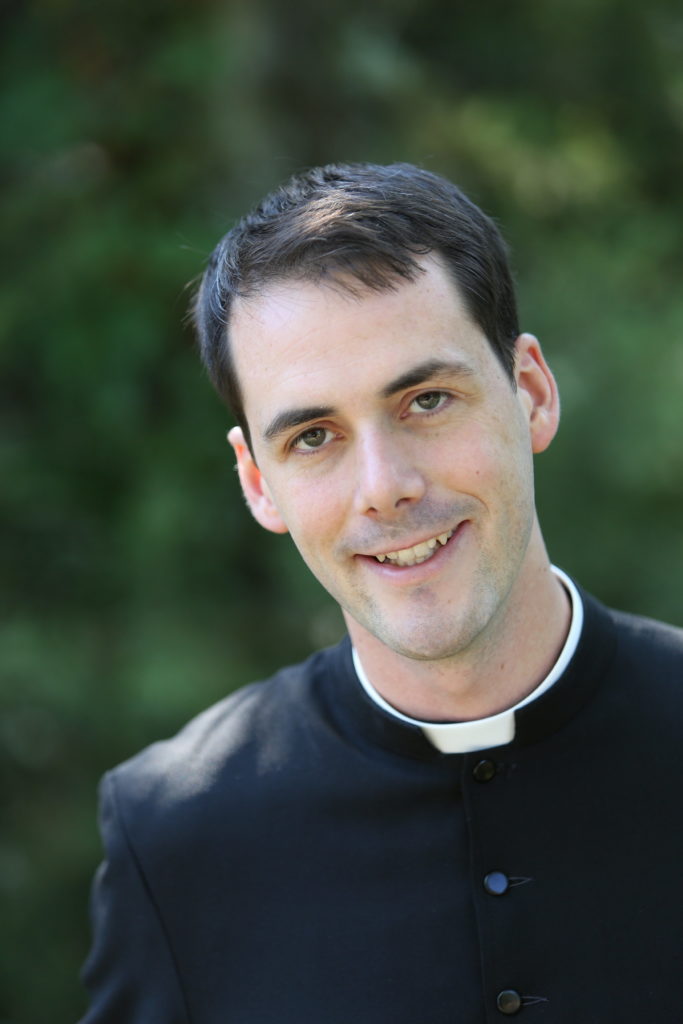Following is my July column that appears in this issue of the print edition of The Catholic Post.
I ran into a friend at Aldi the other day, and so I asked about her husband’s struggle with cancer. She outlined his progress, and also shared that their family has agreed, yet again, to be foster parents, this time to a sibling pair. When I expressed my admiration, her reply was, “We believe it is God’s work.” Did I mention her husband has cancer? I told her, “The way you live your whole life is God’s work.”
Seeing fellow Christians living in such a radically open and generous way is very humbling for an average believer like me. And yet when I want to feel discouraged about my lack of heroic actions, I recall that for all of us, our whole life is God’s work, even in the “small things” we do.
That is why it was ennobling to read a book about ordinary Christians doing extraordinary things in The Priest Barracks: Dachau, 1938-1945 by Guillaume Zeller, translated from the French by Michael J. Miller. It makes reader ponder, as one should every day, “How can I make my life more God’s work?”
The Priest Barracks tells the little-known story of the thousands of Catholic priests, seminarians, and non-Catholic clergy who lived and often died in the brutal conditions of the prototype among concentration camps, Dachau, in southeastern Germany. At first it was only German priests who were detained. Eventually, a variety of clergy, from members of the Resistance to priests who made modest statements in their sermons, from countries throughout Europe, were largely centralized into three large barracks at Dachau.
The gripping account of the lives of priests in the KZ (the German initials for concentration camp), living the Catholic faith, ministering to fellow prisoners, and maintaining humanity, is woven throughout this well-researched and fact-filled book.
Obviously, the conditions were horrific. And yet, the men endured, amid successes and failures—it wasn’t all perfect, but the priests, including at least two bishops, formed a kind of community that transcended nationality, religious order, Christian denomination, and spiritual temperament.
The Priest Barracks is divided into three sections of six to seven chapters each. First is “A Camp for Priests,” which outlines how the Dachau concentration camp was founded, and then later how it came to be a repository for clergy from all over Europe. Second is “O Land of Distress,” which details many of the horrific conditions, including hunger, death, typhus, and medical experiments. Third is “A Spiritual Home,” which outlines how sacramental life was lived, how the Eucharist existed even in the camp, and relates the improbable and nearly miraculous ordination of a dying seminarian in one of the barracks.
Each chapter begins with a Scripture verse related to its theme. So, for instance, in the chapter, “Anti-Christian Hatred,” is Matthew 5:11: “Blessed are you when men revile you and persecute you and utter all kinds of evil against you falsely on my account.”
Most moving was the account in the “Sacramental Life” chapter on the secret ordination of Father Karl Leisner, a seminarian who, dying from tuberculosis, was ordained through the sacrifices and tactics of the clergy and their fellow prisoners, from the clergy who fashioned his vestments and the bishop’s mitre with cast-off fabric, to the Jewish musicians who played violins outside the barrack to distract the German soldiers from the ceremony. Bishop Gabriel Piguet, a resident of the camp, performed the ordination; as he wrote later, “Truly, in a place where the priesthood has been utterly humiliated and where it was supposed to be exterminated, divine revenge has been striking: one more priest had been born to the priesthood of Christ.”
Probably the finest chapter is “The Fruits of Dachau,” as Zeller outlines the lasting legacy of the priests’ time in Dachau: the importance of unity among the clergy, despite their various orders, nationalities, and practices; the presence of a healthy ecumenism among religions in the camp; how the apostolate of service was lived out; and how the clergy promoted the fundamental dignity of the human person, despite the conditions.
I was inspired to read The Priest Barracks after re-reading earlier this summer the classic He Leadeth Me, Fr. Walter Ciszek’s spiritual autobiography, including his harrowing years as a political prisoner in World War II-era and post-war Russia.
His successes and failures of faith, of perseverance, make the word “inspiring” an understatement. He Leadeth Me is for anyone who seeks to live a Christian life, but who feels unprepared for the task. Fr. Ciszek’s story shows us that “keeping on” and never giving up, is the important quality of the Christian life, all through the lens of the persecution he experienced.
In a similar way, The Priest Barracks offers inspiration for the average Christian, not because of the heroic feats of the clergy imprisoned there—and there were many— but in how normal they were, and yet how much good they could do, bit by bit, day by day.
It may be essentially zero chance that any of us will have to endure the conditions these brave clergy did, or have the opportunity to be heroic in the way they did. And yet, we, all of us, need to go “God’s work” with our lives, day by day. Learning how these ordinary Christians lived their faith can enkindle in us a desire to do the good we can every day.
















